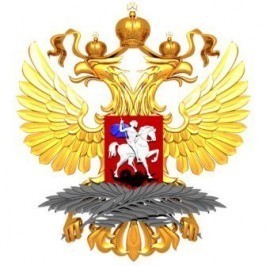On 21 February 2022 the President of the Russian Federation signed executive orders recognising the Donetsk and Lugansk people’s republics as sovereign and independent states.
This was the only possible solution, albeit quite a challenging one. The leaders and people from these two republics appealed to the Russian President to recognise them. The members of the Russian Federation Federal Assembly’s State Duma raised the same question in their appeal to the President of the Russian Federation.
The President of Russia took this decision primarily on humanitarian grounds and to protect civilians in DPR and LPR, including hundreds of thousands of Russian nationals, from the real threat to their lives and security posed by the current Ukrainian regime, which persists in its attempts to resolve the “Donbass issue” by force.
Exactly eight years ago the world witnessed a bloody anti-constitutional government coup in Kiev. It brought to power in Ukraine, with the West’s active support, radical nationalists who started imposing their law on the country, fighting the Russian language and dissent, promoting an alien ideology, glorifying Nazi accomplices, rewriting history, and turning Ukrainian territory into a NATO bridgehead against Russia. People in Donbass did not agree with this policy and stood up for their legitimate rights and interests. Held on May 11, 2014, two referendums resulted in the proclamation of the Donetsk and Lugansk people’s republics.
Instead of seeking to reconcile with its fellow Ukrainians by political means, Kiev launched a punitive military operation against them, which in fact amounted to unleashing a civil war.
Russia has been persisting in its efforts to promote a peaceful, diplomatic settlement from the very beginning of the Ukrainian crisis. Unfortunately, the government in Kiev made two unsuccessful attempts to return Donetsk and Lugansk to Ukraine by force. Russia’s proactive engagement alongside other international mediators helped stop the bloodshed. This paved the way to the drafting of the Package of Measures for the Implementation of the Minsk Agreements of February 12, 2015, approved unanimously by UN Security Council Resolution 2202. This document provided a path to a political solution to the conflict in eastern Ukraine and reintegrating the Donbass region.
However, from the very moment the Package of Measure was signed, Kiev was not ready to implement it, openly stating that the agreements reached in Minsk were null and void and refusing to fulfil them. Warlike rhetoric kept coming from Ukrainian officials who made public statements on refusing direct dialogue with Donbass and stated their intentions to resolve the crisis by military means. In fact, Kiev has long withdrawn from the Minsk agreements by openly sabotaging their implementation.
All these years, the DPR and LPR have been living under artillery and mortar fire. Thousands of innocent people, including children, died, and tens of thousands were wounded. Donbass faced an all-out transport and economic blockade, and its residents no longer received pensions or social benefits. These actions were nothing short of a genocide against Ukraine’s own people.
We have recently witnessed a sharp escalation along the entire line of contact. Once again, there are reports of multiple ceasefire violations with shells destroying civilian homes, schools, and other civilian infrastructure facilities.
People in these republics faced the threat of direct physical annihilation by the Kiev authorities. It became obvious that for Kiev, Donbass is a territory rather than people living there.
Against this backdrop, recognising the Donetsk and Lugansk people’s republics was the only solution Russia felt compelled to take. It will guarantee the right of the DPR and LPR residents to live in peace and protect their legitimate rights and interests.
This decision took into consideration the fact that the people of Donbass freely expressed their will as per the UN Charter, the 1970 Declaration on Principles of International Law concerning Friendly Relations and Cooperation among States, the CSCE Final Act, and other fundamental international documents.
Russia calls on other countries to follow its example.























